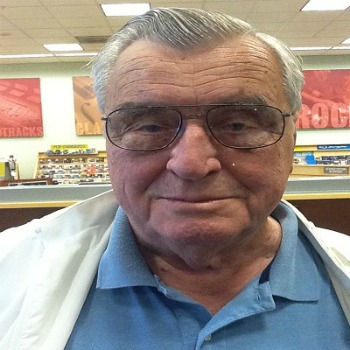
William Arthur Delaney
Sprints
William Delaney is a native Californian who graduated from UCLA. He has worked in insurance, advertising, real estate, and other fields while supporting a growing family and writing when he could find time. He has published hundreds of short pieces, including eighteen peer-reviewed literary essays in The Explicator. Now retired, he devotes his time to writing and has published in The Christian Science Monitor, The Sun, South Dakota Review, Berkeley Fiction Review, The Writer, Writer’s Digest, The Armchair Detective, Crime: Das Krimi Journal, The Iconoclast, L.A. West, Calliope, Neologisms, and elsewhere.
Rigor Mortis
I opened the door and called, “Ken?”
He always left it unlocked. He was too weak and past caring. Not that he had many visitors. In the short time he had lived in our building he had antagonized everybody. He thought he was better than they were. He had been an accomplished pianist and had consorted with famous people.
He did have a few callers—visiting nurses, social welfare workers, volunteers from Meals on Wheels, and a man from the pharmacy who brought medications Ken rarely took as directed. There were pills on the floor, pills on his bed, and unopened plastic vials all over. An old man’s legacy: pills and bills.
I was his only regular visitor. In a building full of old people, we all needed at least one friend who would make sure we were still alive. Otherwise, a man or woman could lie dead until somebody complained about the smell in the hallway.
Once again I called, “Ken?”
I knew what I was going to see. I didn’t want to see it, but now there was no turning back.
He was sitting on a wooden chair with one forearm on the dinette table. His chin was touching his chest. His face was drained of color. In his classic pose of total defeat he looked like Picasso’s emaciated “Old Guitarist.”
Ken had congestive heart failure, a condition which caused him to blank out whenever blood stopped pumping to his brain. He had lost consciousness and his heart had stopped pumping forever. When I tried to shake his shoulder, his whole body rocked back and forth. I felt the marble coldness halfway to my elbow.
A woman later asked me, “Weren’t you scared?”
My feelings were far more complicated than that. I felt surprised. I felt a little uncanny. I felt guilty because I hadn’t checked on him the day before. I felt relieved because he wasn’t my responsibility anymore. I felt some pity for the old man who had nobody but me, a mere acquaintance, to pay this visit. I felt older and wiser. This was what death looked like.
I also admired him. After all, he was terminally ill. He knew it. The fact that he had gotten through it all by himself made him seem that much more courageous.
In addition to my other feelings, I envied the dead man. He had not only escaped from life but from these bone-white walls, thrift-store furniture, unpaid bills, unwashed dishes, and congealed leftovers in the refrigerator.
Lastly, it occurred to me that someday my daughter would have to empty my own little apartment, which wouldn’t look too much different to her than this place did to me. What will she keep? What will she sell? What will she give away? What will she throw out? An old man’s books and letters. An old man’s bed. An old man’s worn leather chair. An old man’s clothes, all out of fashion, or never in fashion. An old man’s personal possessions, most of them with meaning and value only for him. I would be sorry to leave my daughter with the problems--but I would be free of them forever.
I was talking to a man from Cuba when we saw three men in black wheeling a body bag past the laundry-room windows. The Cuban uttered something in Spanish, quickly turned away and made the sign of the cross on his forehead, chest and shoulders.
There was no other ceremony for the deceased.
“ I live in a senior retirement building in San Diego where I meet many interesting men and women from all over the world. Ken, a gifted professional pianist, was a loner. I liked him in spite of his being so ornery. He suffered from congestive heart failure which caused him to blank out in mid-sentence, then regain consciousness and continue dominating the conversation as before. My experience in finding him as I did was so uncanny that I had to write about it to get it off my mind. ”
